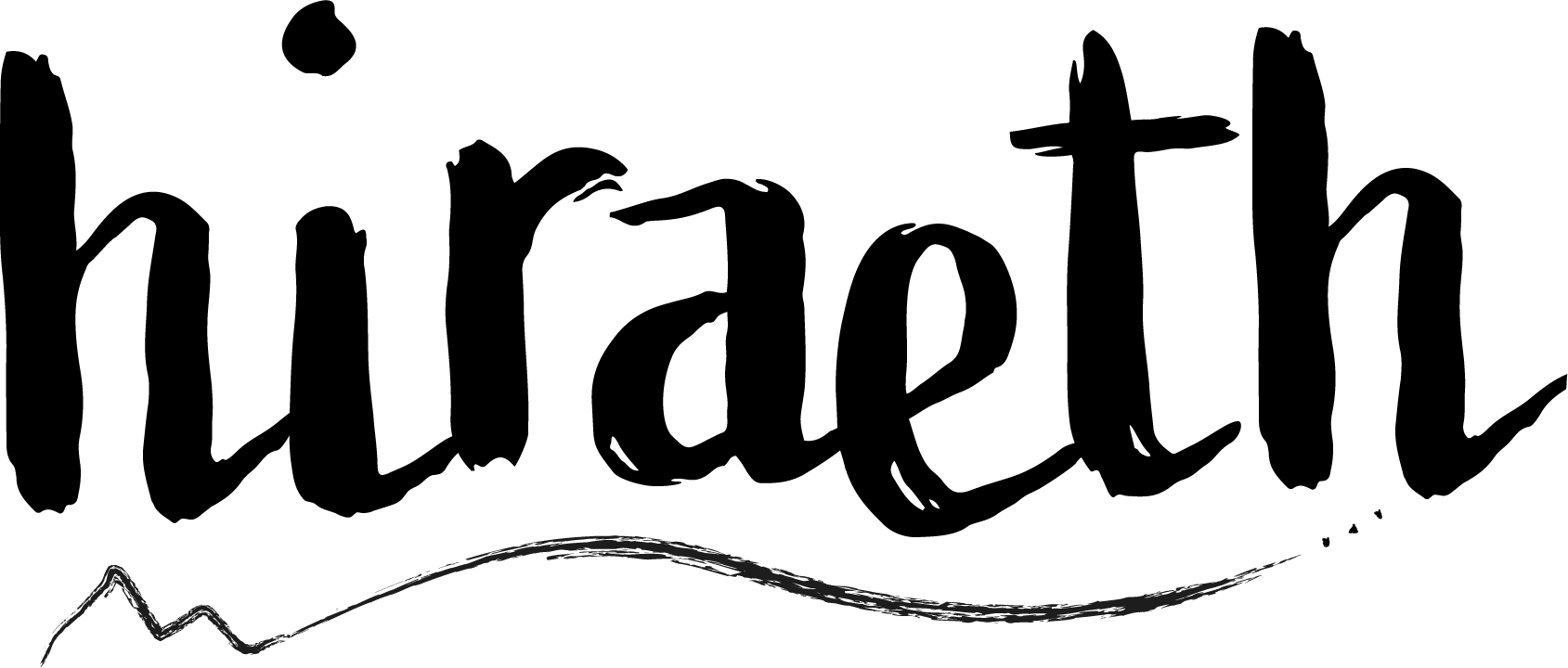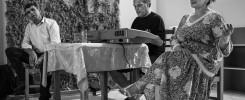Lees in het Nederlands | Read in English
SO SAID (5)
Teuta or the backbone
We stare at a sculpture in white marble. The figures are colossal and bursting with heroism. In the centre we see Skanderbeg, the national hero of Albania. He was the one who successfully fought against the Turkish Ottomans for many years. He is a symbol of the West’s resistance to the East and this earned him fame and statues all over Albania, even in a square in Brussels.
At the side of this hero of freedom, we see his sister, Teuta, who is a sturdy woman. She has a hard look, arms like tree trunks, huge hands clenched into fists, the coat of arms at the ready. It is not the only statue in this genre, here and there in museums and castles we see this kind of woman statues. Sometimes surrounded by cannons and other artillery. The red flag with black eagle is never far away. Nor is the longing for the glorious past.
In daily life, women in Albania are less likely to be on the pied de stall. A slap is quickly dealt out. If you were to complain about that or go to the police, you would need more courage than Teuta. There should be improvement. As of 2021, the Albanian government has 70% women, a world record! “Women are the backbone of Albania” says a man in the tour group. The other men are nodding in agreement. “As, in fact, everywhere” mutters another.
That afternoon we are awaited by musicians at a tavern in Sarandë, a beautiful seaside town on the Ionian Sea. A billboard welcomes us: “Discover your dream!” Two men perform traditional music from southern Albania. The flute sounds high and rhythmic. After insistence, the proprietress of the store joins in. She sings, at first unsure but later full of joy. She rocks her heels, turns, talks and dances with her hands. Diamont Blu is her stage name. She would deserve a larger stage but that is not yet possible. But she knows how to get things done. A few months ago she started this business. A daring move in economically difficult times. Here too, corona leaves its mark, tourism sputters, little money is spent, and there are no guests from Russia at all. Bravely continuing and hoping for better times is the motto.
The two musicians get mixed up in a discussion. The state of Albania is commented on. “Nothing is improving,” thinks one. “Not at all”, says the other “in the time of the communists it was really a disaster”. “Or worse, when anarchy broke out. “And now, what do they actually do?” “It used to be better. It is difficult to know which past we are talking about. Homesickness about the old days we heard popping up several times during conversations. Musing about a lost feeling, place or time, it needn’t to be difficult and it helps as a balm for the soul. Meanwhile, Diamont Blu clears the table. She also makes our bill after dinner.
Back outside, we see a young woman posing. Tight in shorts, hollow back, a wide smile at the selfie camera. Looking forward to the future with confidence! In the background, a bright red flag flies. Two girls in their fifties watch the scene and exchange a look of understanding. For this Teuta, it is still too early for reverie.
ZO GEZEGD (5)
Teuta of de ruggengraat
We staren naar een beeldengroep in witte marmer. De figuren zijn kolossaal en barsten van de heroïek. Centraal staat Skanderbeg, dé nationale held van Albanië. Hij was het die jarenlang met succes vocht tegen de Turkse Ottomanen. Hij staat symbool voor de weerstand van het westen tegen het oosten en dit levert hem roem en standbeelden op in heel Albanië tot op een pleintje in Brussel toe.
Aan de zijde van deze vrijheidsheld staat de kloeke Teuta, de zus van. Ze heeft een harde blik, armen als boomstronken, reusachtige handen tot vuisten gebald, het wapenschild in de aanslag. Het is niet het enige beeld in dit genre, her en der in musea en kastelen zien we dit soort vrouwenbeelden opduiken. Soms omringd door kanonnen en ander oorlogsgeschut. De rode vlag met zwarte adelaar is nooit ver weg. Het verlangen naar het roemrijke verleden ook niet.
In het dagelijkse leven staan vrouwen in Albanië minder vaak op de pied de stal. Een tik is snel uitgedeeld. Als je daarover gaat klagen of naar de politie zou willen, heb je meer moed nodig dan Teuta. Er zou beterschap moeten komen. Sinds 2021 telt de Albanese regering 70% vrouwen, een wereldrecord! ”Vrouwen vormen nochtans de ruggengraat van Albanië” zegt een man in het reisgezelschap. De overige mannen knikken éénsgezind. “Zoals eigenlijk overal” mompelt een ander.
Die middag worden we opgewacht door muzikanten in een taverne in Sarandë, een mooie badplaats aan de Ionische zee. Een reclamebord heet ons welkom: “Discover your dream!” Twee mannen brengen traditionele muziek uit het Zuiden van Albanië. De fluit klinkt hoog en ritmisch. Na aandringen sluit de uitbaatster van de zaak aan. Ze zingt, eerst onzeker maar later vol plezier. Ze wipt op haar hakken, draait, praat en danst met haar handen. Diamant Blu is haar artiestennaam. Ze zou een ruimer podium verdienen maar dat zit er vooralsnog niet in. Ze weet nochtans van aanpakken. Enkele maanden geleden startte ze deze zaak. Een gedurfde stap in economisch moeilijke tijden. Ook hier laat corona sporen na, het toerisme sputtert, er wordt weinig geld uitgegeven, gasten uit Rusland zijn er al helemaal niet. Dapper doordoen en hopen op betere tijden is het motto.
De twee muzikanten raken onderling in een discussie vermengd. De staat van Albanië wordt besproken. “Er gaat niets vooruit”, vindt de ene. “Helemaal niet”, zegt de andere “in de tijd van de communisten was het écht een ramp”. “Of nog erger, toen de anarchie uitbrak”. “En nu, wat bakken ze er eigenlijk van?” “Vroeger was het beter”. Over welke vroeger het gaat is moeilijk te volgen. Heimwee over het verleden hoorden we al meerdere keren opduiken tijdens gesprekken. Mijmeren over een verloren gevoel, plaats of tijd, het is niet lastig en het helpt als balsem voor de ziel. Intussen ruimt Diamant Blu de tafel af. Ze maakt ook onze rekening na afloop van het dineren.
Terug buiten zien we een jonge vrouw poseren. Strak in short, borst vooruit, holle rug, een brede glimlach naar de selfie-camera. Vol vertrouwen de toekomst tegemoet! Op de achtergrond wappert een fel rode vlag. Twee meisjes van vijftig kijken naar het tafereel en wisselen een blik van verstandhouding uit. Voor deze Teuta is het nog te vroeg voor mijmeringen.
- Katelijne Béatse
- Gjirokäster (Albania)



